Of course, we had to make a few tweaks, as is our modus operandi. I have two cheats for dried beans - one, I've told you before, is that I always soak double or triple or quadruple the amount of beans I plan to use in a recipe, portion out the remainder into single-serving packages, and freeze the soaked beans so they're ready when I need them. This recipe just will not work with canned beans, so if you don't have time to soak - don't bother.
My second tweak is to start the cooking using a pressure cooker. Boston Baked Beans start with lightly-cooked beans - which means nearly an hour on the stovetop. You can get them to the same state in 8 minutes in a pressure cooker on high pressure. If you're in a rush, and you don't mind slightly soupy baked beans, you can do the entire recipe from start to finish in your pressure cooker - just dump the whole recipe in and cook at high pressure for 20 minutes (you can also dump all the ingredients into a slow cooker and leave it cooking for 8 hours.) As always, Sparky was on board with using any kind of technology - especially if it had the potential to explode!
Ingredients:
2 cups dried small, white beans, rinsed and soaked overnight in twice the volume of water4 cups water
2 bay leaves
3/4 teaspoon salt
1 yellow onion, chopped
1/2 cup light molasses
1 1/2 tablespoons dry mustard
3 strips thick-cut bacon, cut into 1/2-inch pieces
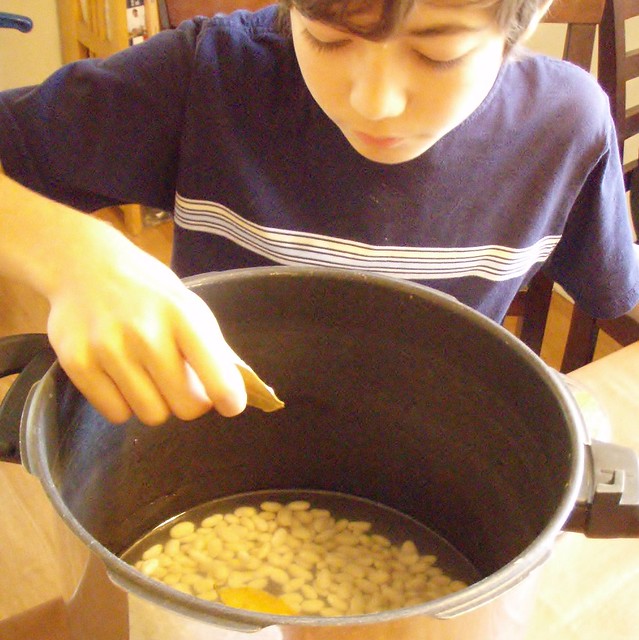 So, to begin, Sparky put 4 cups of pre-soaked, thawed white beans (beans double in size when soaked) in the pressure cooker with 4 cups of water and two bay leaves.
So, to begin, Sparky put 4 cups of pre-soaked, thawed white beans (beans double in size when soaked) in the pressure cooker with 4 cups of water and two bay leaves. 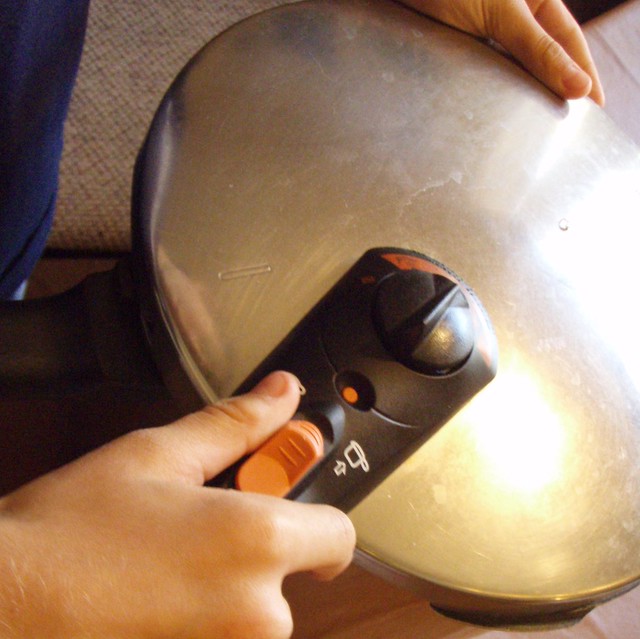 We locked the lid, pressurized, and once steam started escaping from the top vent, we turned the heat to low and set the timer for 8 minutes. When the timer rang, we took the pan off the heat and let it rest until the pressure gauge showed it was ready to open.
We locked the lid, pressurized, and once steam started escaping from the top vent, we turned the heat to low and set the timer for 8 minutes. When the timer rang, we took the pan off the heat and let it rest until the pressure gauge showed it was ready to open.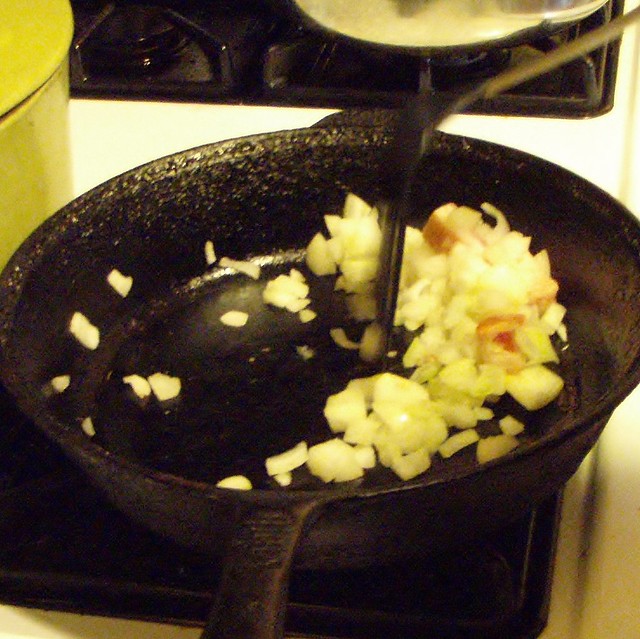 In the meantime, Sparky sauteed the onion in the bacon.
In the meantime, Sparky sauteed the onion in the bacon. 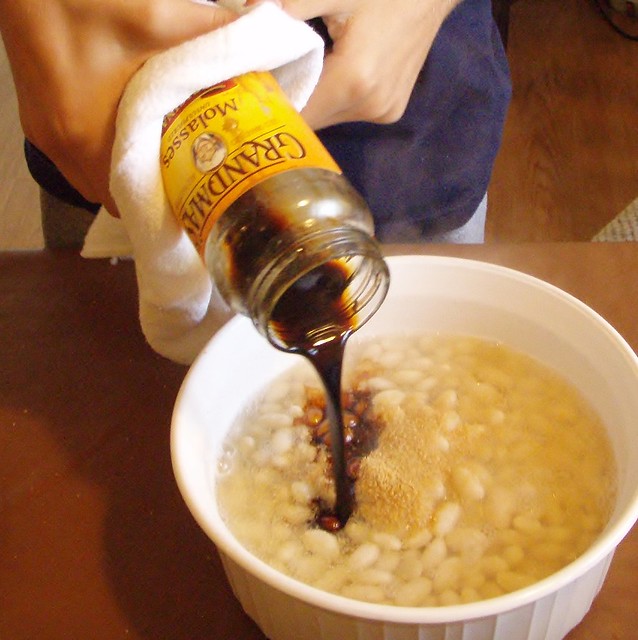 Once the pressure dropped and we were able to remove the beans, we poured them into the onions and bacon to deglaze the pan. We then poured the entire thing into an oven-safe casserole dish.
Once the pressure dropped and we were able to remove the beans, we poured them into the onions and bacon to deglaze the pan. We then poured the entire thing into an oven-safe casserole dish.Sparky added the ground mustard, salt and molasses to the casserole dish, which we covered and put in a 350 degree oven and left it alone for four hours, checking occasionally to see that the beans were neither too dry nor too wet (if too dry, add a bit of water - if too wet, remove the lid.) It filled the house with an absolutely delicious smell for the entire time it cooked.
When the beans were done, we served them with a simple chicken salad. They were creamy and delicious, and each bite was smoky, sweet, salty and lightly spicy; they are vastly superior to the canned kind and well worth the time. Enjoy!

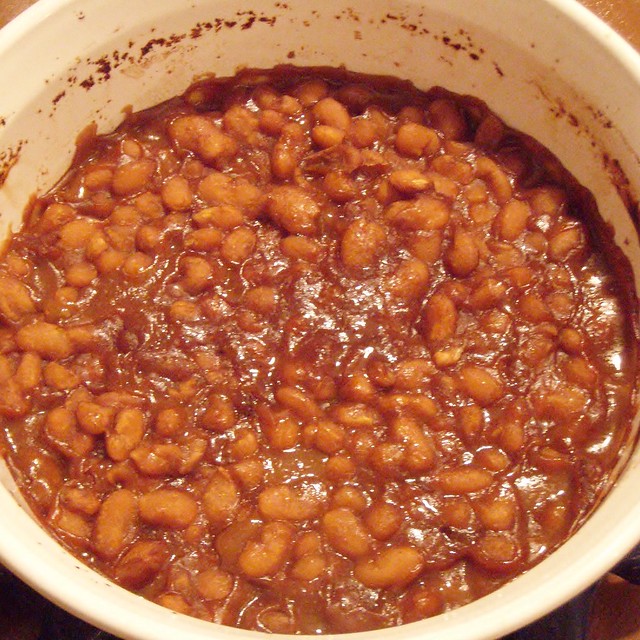
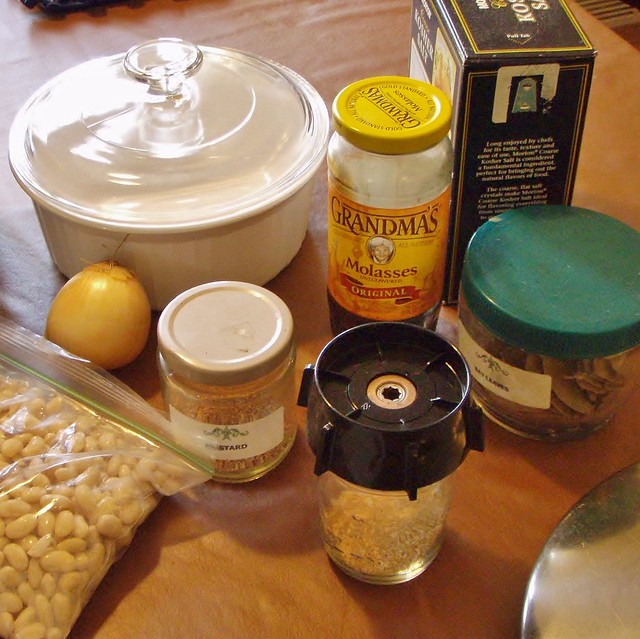
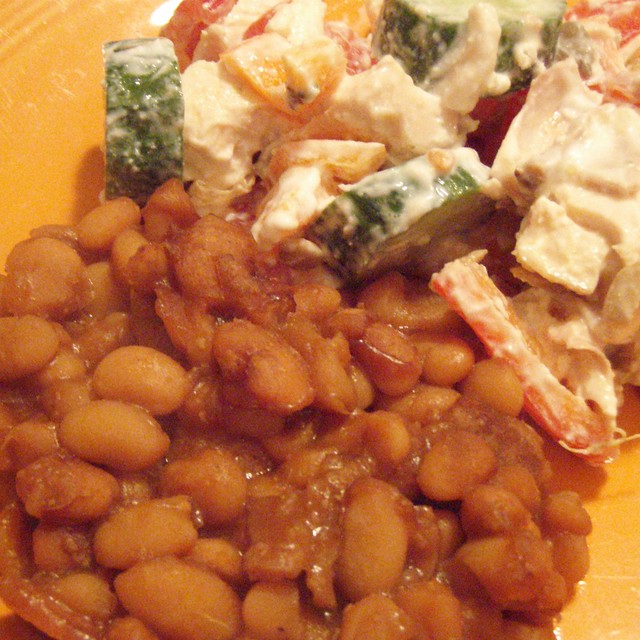




2 comments:
But do you really have to soak the beans? I've forgotten before and skipped it - just had to cook the beans a bit longer. These look delicious and definitely kid-friendly. Knowing how to cook beans will serve Sparky well. Canned beans are cheap but dry beans are cheapest, plus you don't have to worry about BPA. Beans were the first good protein I could get my baby to eat, so we love them at our house!
Very good question! Many people prefer not to soak beans and to just cook them longer - but, in my personal opinion, I've found that pre-soaked beans have a better final texture. More importantly, keeping frozen pre-soaked beans on-hand means beans for dinner in as little as 10 minutes.
There are people who argue that pre-soaking beans and discarding the water removes some of the sugars that are associated with gas, and also helps remove phytates from the beans that contain them (mostly beans of American origin.) Of course, cooking also addresses these two things, so I'm not sure that there's really any basis in fact that soaking beans is any better than cooking them.
Welcome, Science of Mom! I just started following you; love your blog thus far - http://scienceofmom.com/
Post a Comment